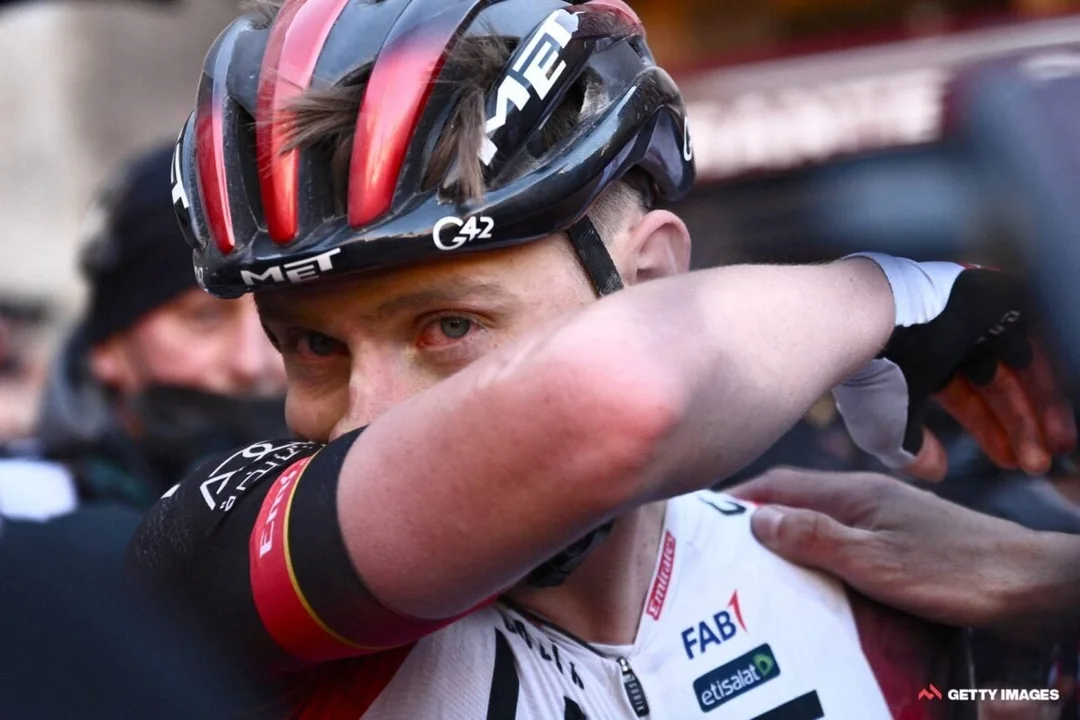In a stunning turn of events, cycling sensation Tadej Pogacar has been handed a suspension from his team following allegations of doping. This development has sent shockwaves through the cycling community, casting a shadow over the illustrious career of the Slovenian rider.
Tadej Pogacar, at just 25 years old, has been hailed as one of the most prodigious talents in modern cycling. His meteoric rise saw him clinch multiple Tour de France titles, with performances that left both fans and competitors in awe. His aggressive racing style and consistent victories drew comparisons to legends like Eddy Merckx, earning him the moniker “the new Cannibal.”
Despite his rapid ascent, whispers of skepticism began to surface. Critics and observers questioned the legitimacy of his performances, especially given cycling’s tumultuous history with doping scandals. The situation escalated when reports emerged suggesting that Pogacar had been utilizing a controversial method involving carbon monoxide rebreathing during altitude training camps. This technique, while not explicitly banned, raised eyebrows due to its potential performance-enhancing effects.
In light of these allegations, Pogacar’s team, UAE Team Emirates, conducted an internal review. Although the use of carbon monoxide rebreathing devices is currently within the bounds of anti-doping regulations, the team decided to suspend Pogacar pending a thorough investigation. A spokesperson for the team stated, “We hold our athletes to the highest ethical standards. Until we can conclusively determine the facts, Tadej will not participate in any team activities.”

Pogacar has vehemently denied any wrongdoing. In a recent interview, he addressed the suspicions, stating, “There will always be doubts because of cycling before my time. In any sport, if someone is winning, there’s always jealousy and haters… I tell you now, it’s not worth it. Taking anything to risk your health is stupid.”
This incident has reignited discussions about the fine line between innovation and unethical advantage in sports. The use of carbon monoxide rebreathing, intended to simulate the effects of high-altitude training by increasing hemoglobin levels, is a gray area in current regulations. While not prohibited, its ethical implications are under scrutiny. The World Anti-Doping Agency (WADA) has acknowledged the controversy and is reportedly evaluating the method’s legality.
The cycling community is divided. Some of Pogacar’s peers have come to his defense. Five-time Tour de France winner Bernard Hinault dismissed the suspicions, stating, “Let’s stop asking these questions all the time! It’s ridiculous. Is there any proof?”
Conversely, others advocate for a more cautious approach, emphasizing the importance of maintaining the sport’s integrity.
As the investigation unfolds, the cycling world watches closely. Pogacar’s case could set a precedent for how emerging technologies and methods are evaluated in professional sports. The outcome will not only impact his career but could also influence future regulatory decisions in cycling and beyond.
In the meantime, fans and fellow athletes are left grappling with the complex interplay of performance, ethics, and the relentless pursuit of excellence that defines the world of professional cycling.
Leave a Reply